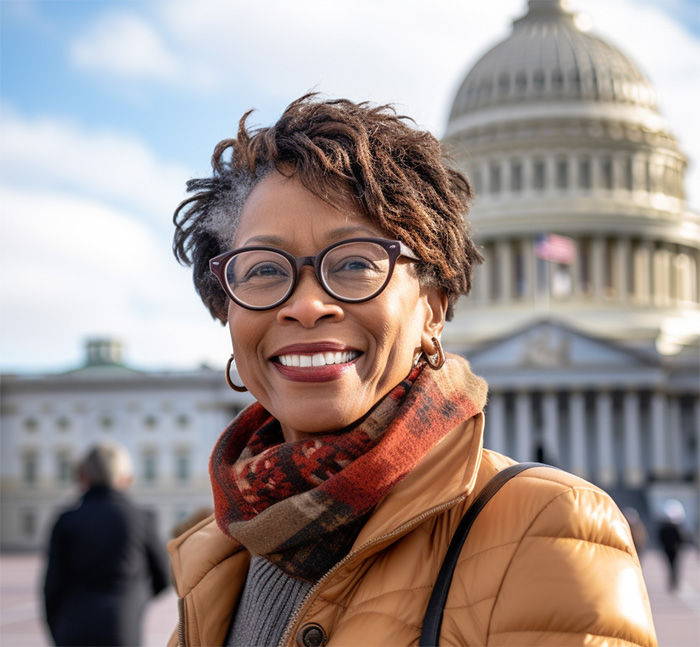In July, President Trump signed the “One Big Beautiful Bill Act” (OBBBA) into law. The package includes the largest cuts in federal spending to the Medicaid program in its history—$1.1 trillion in cuts over a decade—as well as numerous changes to the Affordable Care Act (ACA) that will affect enrollment and eligibility.
Prevent Blindness is deeply concerned about the OBBBA for the harm that these policies are projected to have on the eye health of all Americans We are also deeply disappointed that this bill prevailed despite significant advocacy from our community of advocates.
For nearly 120 years, Prevent Blindness has worked to remove barriers to eye care for those in need of early detection, intervention, and preventive eye care services. We also work to protect and preserve access to eye health care, including for people with vision loss, blindness, visual impairment, low vision, chronic and rare diseases, and acute conditions such as injury or infection that may affect vision. We accomplish this by working with legislators and stakeholders to improve policies that protect and expand access to vision and eye health and strengthen our national vision and eye health system.
As it stands, many of the policies enacted into law through the OBBBA run counter to that work in almost every way. We are encouraged by the inclusion of a provision to improve access to treatments for rare eye disease patients, but we remain dismayed about numerous other provisions of the OBBBA that may complicate access for those with chronic disease and eye conditions.
The impact of the deep cuts to Medicaid and the expiration of ACA subsidies, will likely lead many to delay or forgo essential vision services such as screenings, eye exams, or treatment, resulting in worsening outcomes and preventable vision loss. Reduced funding for the Children’s Health Insurance Program (CHIP) may impact pediatric vision screenings delivered through the Early and Periodic Screening, Diagnostic and Treatment (EPSDT) benefit. Additionally, new work requirements, twice-yearly eligibility checks, and shortened retroactive coverage periods could disrupt care, burden providers, and delay treatment for individuals experiencing acute vision needs.
Eye Care Access and Advocacy
Do you have a story about access to eye care?
Prevent Blindness Advocacy Alerts
Funding restrictions may also force states to narrow eligibility, eliminate optional benefits like adult vision care, or reduce provider reimbursements, all of which threaten access to eye care, particularly in rural and underserved areas where safety-net providers are already operating with inadequate budgets.
Nonetheless, our mission continues: We are still working to protect access to vision and eye health care and to prevent blindness and preserve sight for people of all ages, backgrounds, circumstances, belief systems, and communities. Our work is even more critical going forward, and as the OBBBA is implemented, we are committed to following the numerous changes we can expect to see in the coming months at the federal, state, and local levels. We will continue to provide people with the information they need to maintain healthy vision and receive the eye care that they deserve.
We will also continue to engage in advocacy to inform lawmakers of how these changes are affecting people and to work with stakeholders across public, private, and non-governmental sectors. Our efforts to pass the Early Detection of Vision Impairments for Children Act (EDVI Act) are now even more important, and we are doubling down on our efforts to ensure that children and families are able to access eye care appropriate to their needs.
We understand there may be uncertainty about this legislation, now law, and how it may affect patients and consumers. Recognizing this, we encourage everyone to continue prioritizing their vision and eye care as much as possible, even as we collectively navigate these changes. Be certain, Prevent Blindness is steadfast in our commitment to protecting our nation’s vision, and we remain your partner in eye health.


